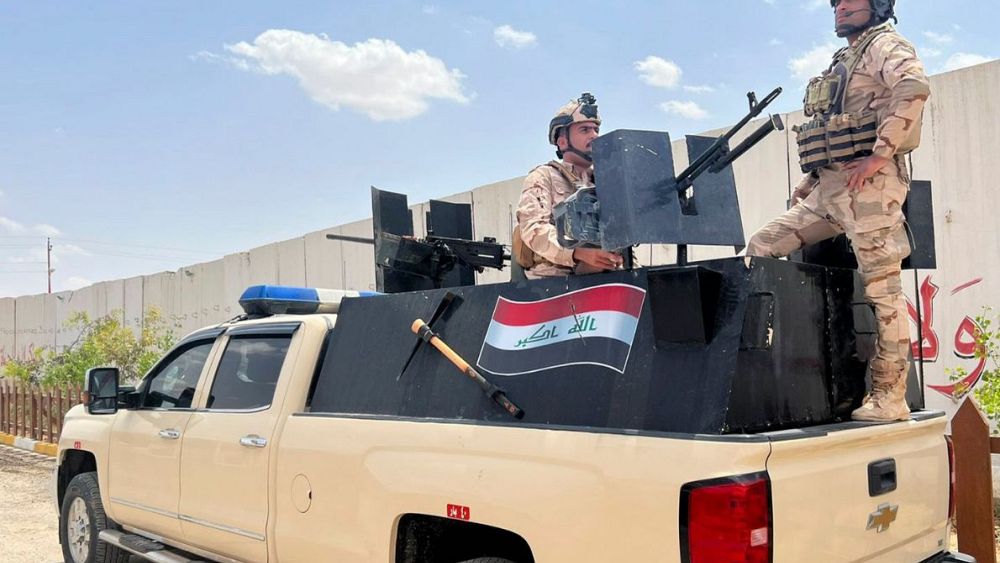Why the sale of guns on Facebook in Iraq is so ‘rife’

Facebook users in Iraq are exploiting the platform’s lack of Arabic and Kurdish-language moderation policies in order to purchase guns online, according to a report.
The study by the Institute of Strategic Dialogue (ISD) has found that the sale of weapons in Iraq is “rife” in Facebook comment sections.
Social media giants have long been accused of failing to effectively moderate harmful and dangerous content, particularly in regions such as the Middle East.
Meta — the parent company of Facebook — has fewer resources to tackle content in various languages and dialects than in English.
The lack of moderation in Arabic and Kurdish has created an open gun market on Facebook in Iraq, said Moustafa Ayad, the ISD Executive Director for Africa, Middle East & Asia.
“It was relatively easy to find weapons for sale on comments sections of very large Facebook pages, pages with over 2 million followers,” Ayad told Euronews.
According to his research, some of the users don’t even bother hiding their intentions. One example, he cites, is a Facebook user whose name is ‘I sell guns’ in Kurdish.
There are several reasons why this network of gun sales pages in Iraq is particularly concerning. First, Arabic is one of the fastest growing languages on Facebook and other platforms owned by Meta such as WhatsApp.
The lack of moderation online and the platform’s popularity has real-life consequences on the ground.
In June, a disgruntled student in Kurdistan killed the partner of a university lecturer and then assassinated the head of the law department of another institution. The student allegedly bought the firearm on Facebook.
Iraq had a higher rate of violent gun deaths per capita than the United States and the highest in the Middle East and North Africa in 2019, according to the University of Washington.
Moreover, there are many internal conflicts taking place in the country, involving government forces, the so-called Islamic State, as well as Iranian-backed militias.
All these factors combined make the country vulnerable to civil unrest. ISD warns that social media giants such as Facebook should be held accountable for letting dangerous content be published on their platforms.
“Conflict zones, in particular, require a different level of content moderation where hate and a range of other online harms can easily slip through automated systems of moderation,” said Ayad.
“It’s not unreasonable to think that a lot of the on-the-ground harms to the population can be fuelled by the lack of content moderation online,” he added.
Facebook said it had taken down a number of accounts that were cited by the report and said it is bolstering its number of moderators in the region.
But the ISD believes that this is only a temporary measure and has called for increased transparency about how Facebook moderates content, because “bad actors” are already exploiting these gaps to share harmful content, like gun sales.
This is not the first time that Facebook’s lack of content moderation has been accused of causing real-life harm around the world.
UN human rights investigators said Facebook had played a key role in spreading hate speech that fuelled violence against the Rohingya community in Myanmar.
Lately, the platform has been condemned for not deleting posts calling for the deaths of citizens against the military junta.
